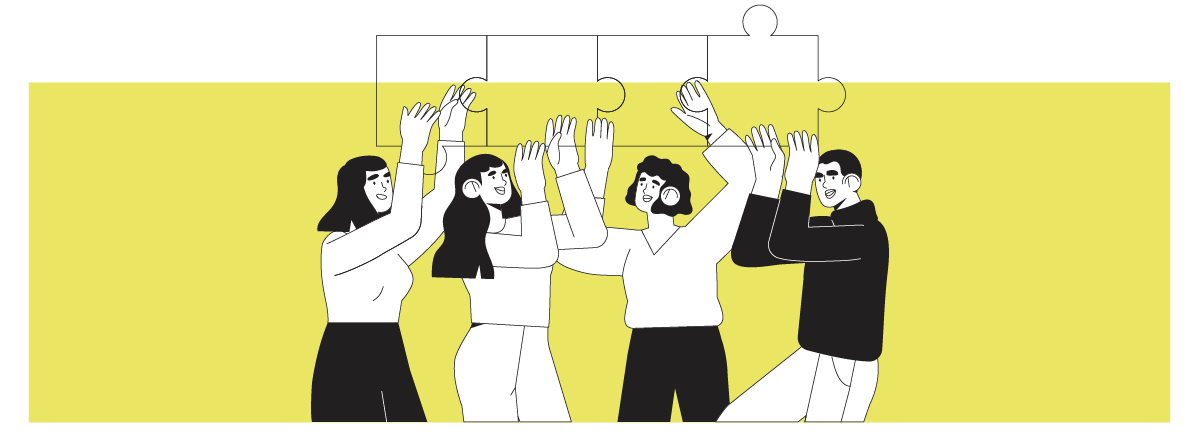TLF Gems Newsletter April 2023
Your monthly CX and insight newsletter from TLF Research
Winning is the best thing, but losing is the second-best thing.
Tadhg Coakley
I absolutely love this quote from Tadhg Coakley's book "The Game". It gets right to the heart of why we enjoy competing in sport, and I think we can open it up wider than that and say it applies to business or any other creative endeavour. And yes, I think both sport and business can (should!) be creative.
He's saying that the two cliches of competition, "win at all costs" and "it's the taking part that matters", both miss the point.
There's nothing wrong with wanting to compete, to test yourself, to be the best. But if you take that risk, it won't always pay off...in fact if you're truly testing yourself it can't always pay off. That's what makes it worthwhile. If you cheat or seek out places you're sure to win, then you deprive yourself of the opportunity to grow..
Thanks for reading,
Stephen
Here are 7 things we think are worth your time this month
Interesting Marketing Week article on Netflix's claim to be encouraging a culture of innovation in its market research teams, giving greater freedom along with greater accountability for impact. "From a market research angle, managers should be clear on the impact pieces of research will have, whether that is tying it to return on investment (ROI) or business outcomes."
Read: Netflix On Honourable Failure
Fascinating summary of a new paper (linked in the thread) showing that rounding numbers in reporting (e.g. "30,000" instead of "28,752") makes readers more likely to remember and be able to apply your findings. If you ever report numbers, and I guess most of us do, you need to take this into account. "Our results revealed a counter-intuitive effect where reading round numbers helped people better approximate the precise values, while seeing precise numbers made them worse."
Read: Round Numbers Work Better
 Relationships For Research Recruitment
Relationships For Research Recruitment
Interesting article, from a ResearchOps perspective, about building relationships with customers in order to make it easier to recruit for user research. All of us engaged in customer research could do with think harder about how we motivate people to want to take part in research. "User research needs to be more reciprocal; it’s important to move away from purely transactional relationships with our customers and start looking for the intrinsic motivations that will inspire them to participate in studies."
Read: Relationships For Research Recruitment
I asked all the Client Managers at TLF which book they'd recommend for our Top Reads section and one replied with "The extract from the bible that says 'treat others as you’d expect to be treated yourself.'" The Golden Rule is actually a much older and more pervasive idea than that, cropping up in nearly every religion and moral philosophy, and has been the subject of a surprising amount of debate (does it matter if the other person has different taste to you?). For CX purposes I like the Platinum Rule: "doing unto others, wherever possible, as they would be done by..."
 What Science Has To Offer Coaching
What Science Has To Offer Coaching
Interesting blog post following up a bit of a Twitter spat between the psychologist Andrew Wilson and a number of football coaches. It's relevant to anyone who is interested in how we get better at pretty much anything. He argues that the science is clear that isolated drills on specific skills, outside of their full context, often do not transfer very well to the real situation because identifying the fundamental parts is very difficult. "In order to design a sensible training context, you therefore need some reason to decompose the game day context into a particular set of parts - you need a theory of what parts make up the game day context."
Read: What Science Has To Offer Coaching
Longtime readers will know I'm a big fan of the Gamestorming approach to facilitation. In this post Dave Gray shares three go-to activities with which I totally agree, in fact they're all exercises I use in nearly every workshop: the post-up, the empathy map, and 2x2 matrices. "There are a few exercises I come back to over and over again. Activities that are part of my thinking and will come up every time I plan a workshop."
There are quite a few books on trust but, even though it's not perfect, I think this one is the best. Stephen M.R. Covey's book has a few too many lists for my liking (the 4 Cores, the 13 Behaviours, the 5 Waves...), but does provide a good model for how trust works. I also like the idea of layers of trust building out from the individual to society, and the emphasis that Covey places on the cost to business of low trust - the Trust Tax. "Trust is hard, real, and quantifiable. It measurably affects both speed and cost."
If you'd ever like to have a look at our list of past Top Reads, they're all catalogued on our website here - enough reading to keep anyone going for a while!
/f/131443/3229x2061/bff1120589/data-skills-for-tsm-online-course-feature.png)
/f/131443/1200x768/0d12bf14c9/customer-experience-landscape-2026-feature.jpg)
/f/131443/2512x1656/98a7710e67/cx-feature.jpg)
/f/131443/640x422/c90e3b081d/research-to-inform-strategy.jpg)
/f/131443/1962x1135/e8f74f1bf6/customer-research-review.png)




